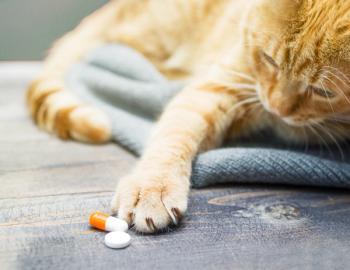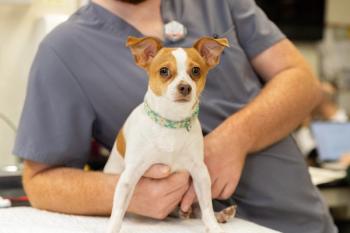
Fireworks Cause Anxiety in Horses: New Zealand Survey Respondents Hope for a Ban
Fireworks provoke anxiety behaviors such as running, sweating, and trembling in horses, according to a recent survey of New Zealand horse owners.
Fireworks provoke anxiety behaviors such as running, sweating, and trembling in horses, according to a survey of New Zealand horse owners recently published in
Researchers from Massey University in New Zealand conducted the survey to assess horses’ responses to fireworks and owners’ management strategies. “Horses are generally considered to be highly unpredictable flight animals shown to be reactive to loud noises and flashing lights,” they write. “Flight responses are particularly dangerous, with the potential to result in severe accidents of the horse and rider/handler…. At present, the lack of data on management strategies employed by horse owners, the perceived effectiveness of such changes and injuries encountered limits debate on the private use of fireworks and the consequences to horses.”
The online survey drew responses from 1111 horse owners. Nearly 80% of respondents reported that their horses were either anxious or very anxious during displays of fireworks. The most common anxiety behaviors reported by owners (selected from a list) were the following:
- Running (reported by 82% of respondents)
- Sweating
- Trembling
- Fence walking
Thirty-five percent of owners also indicated that their horses had broken through fences in response to fireworks. Reported injuries to horses included lacerations, strains/sprains, and fractured limbs.
The most commonly used management strategy was moving affected horses to a paddock further from the fireworks. However, more than one-third of respondents reported that this strategy was not effective for reducing horses’ anxiety. Stabling horses during fireworks was rated as ineffective by 30% of respondents who had tried it. Only about one-fifth of respondents had sedated a horse during fireworks; 9% of them rated this approach as ineffective.
The authors note that in New Zealand, horses are commonly pastured year-round, potentially increasing their fireworks exposure compared with horses that are housed in stables for at least part of the year. The authors theorize that horses in New Zealand might not have the chance to habituate to fireworks, as might be expected in horses housed outdoors, because fireworks displays are generally centered around a single holiday (Guy Fawkes Day, November 5) and occur sporadically and unpredictably in the following weeks.
A proposed ban on the private use of fireworks has been the subject of debate in New Zealand. Ninety percent of survey respondents did not support the sale of fireworks for private displays. The authors note that selection bias may have affected the results, with increased participation by owners of horses with fireworks-related anxiety, but they conclude that any bias should be mitigated by the large sample size.
Dr. Laurie Anne Walden received her doctorate in veterinary medicine from North Carolina State University in 1994. After an internship at Auburn University College of Veterinary Medicine, she returned to North Carolina, where she has been in companion animal general practice for over 20 years. Dr. Walden is also a board-certified Editor in the Life Sciences and owner of Walden Medical Writing.
Newsletter
From exam room tips to practice management insights, get trusted veterinary news delivered straight to your inbox—subscribe to dvm360.





